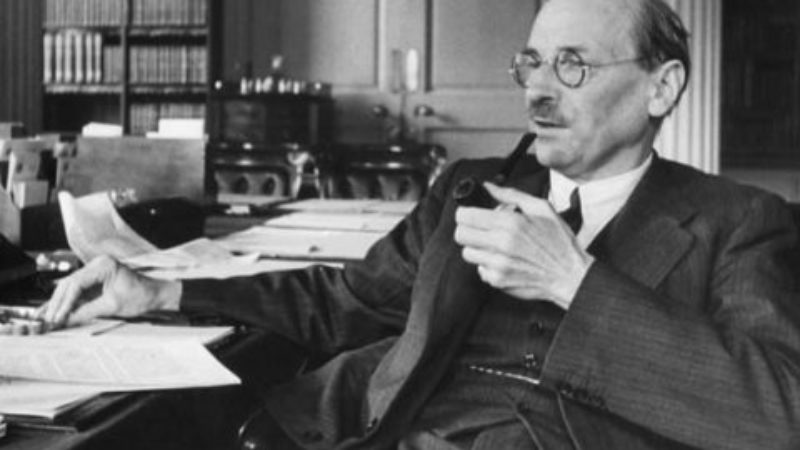
In 2004, a University of Leeds/Ipsos MORI poll of university academics rated Clement Attlee as the twentieth-century’s greatest Prime Minister with an average mark of 8.34 out of 10; Winston Churchill was second on 7.88. Given the scale of the changes introduced during his premiership, this was unsurprising.
When I first published my book Attlee: A Life in Politics in 2010, I wrote that “Clement Attlee bestrides the twentieth-century history of the Labour Party.” As I publish a second edition of my book thirteen years later, and having seen – at close quarters as an MP – successive Conservative Prime Ministers take office and leave in failure, I can only conclude that his achievements seem even more impressive as time passes.
We can look to the optimism of the ’45 government to guide us today
Now, as we approach another general election and campaign to transform the country, it is important to consider the Labour governments of the past. As Keir Starmer puts in in his foreword: “It was the hope that a better future was possible that underpinned Attlee’s great government. Labour’s mission under my leadership is to restore that optimism today.”
Attlee’s administrations of 1945-51 were radical and reforming. At home, they created the welfare state and the National Health Service; abroad, they decolonized swathes of the British Empire and cemented Britain’s relationship with the United States with the founding of NATO in 1949.
The approach to the economy, maintaining high levels of employment, with major industries in public ownership, dominated British politics until 1979. This was all achieved in difficult circumstances after the Second World War: Britain was a war-damaged country facing what the economist John Maynard Keynes called its “financial Dunkirk.”
“Democracy means government by discussion but it is only effective if you can stop people talking.”
A central part of securing such monumental achievements was Attlee’s leadership style. Once he had left office and was reflecting on his time in Number Ten, he concluded that the essential quality of the Prime Minister should be that they are “a good chairman able to get others to work. He must be able to decide in the last resort between competing policies. He must have the architectonic sense.
“He must see the whole building not the bricks…I would sum up the essence of the premiership by saying that there must be someone to take a decision. The decision that he must take is not that a certain course should be followed but that a decision must be come to.” This meant that Attlee has little time for what he regarded as pointless discussions. He put it pithily: “Democracy means government by discussion but it is only effective if you can stop people talking.”
There were areas where, however, he departed from this style. Attlee had a particular interest in India: he had been one of seven MPs appointed in 1927 to the statutory commission chaired by Sir John Simon to look at the governance of the sub-continent. The Prime Minister changed the Viceroy, Archibald Wavell, replacing him with Earl Mountbatten in March 1947, and set a firm exit date.
Attlee kept a careful eye on his ministers’ performances
The decision for Britain to have its own, independent nuclear deterrent was taken in a secret cabinet sub-committee. Attlee also monitored closely the performance of members of his administration. In March 1948, he rebuked his ministers for not knowing their speeches, telling them that they were “exposing themselves to justifiable criticism by reading their speeches in the House.”
Attlee himself used words sparingly. In preparing a party political broadcast at Walthamstow Town Hall in the early 1950s, when Labour was back in opposition, Tony Benn, knowing how laconic Attlee was, had drafted fifteen questions for a fifteen-minute slot to ensure that there were significantly more issues to discuss than would ordinarily be needed to fill the time.
In the event, Attlee rattled through them all within thirteen minutes. Desperate to secure an attack on the Conservative government in the final two minutes, another question was put: “Mr Attlee, gold and dollar reserves are lower now than when you became Prime Minister.” The Labour Leader replied amiably: “That may very well be so.”
A man of a different time- but with timeless priorities
Nor was Attlee easily distracted from the task in hand. He was reluctant to have Press Association tapes updating him with news in No 10, and only accepted them after his press secretary, Francis Williams, persuaded him.
The modern-day media environment would be unrecognisable to Attlee. But his style of focussing on the things that matter most is timeless, and would stand out in any political era. Politics is – ultimately – about improving the lives of the people we are privileged to represent, and that is why Attlee remains such a powerful influence today.
According to his obituary in The Times, “much of what he did was memorable; very little that he said.” Having spent so much time studying Attlee as his biographer, I think I can say he would have liked that.
A new edition of Nick Thomas-Symonds’ ‘Attlee: A Life in Politics’, with a new foreword by Keir Starmer, is out via Bloomsbury Publishing today.




More from LabourList
Government abandons plans to delay 30 local elections in England
‘The cost of living crisis is still Britain’s defining political challenge’
‘Nurses are finally getting the recognition they deserve’